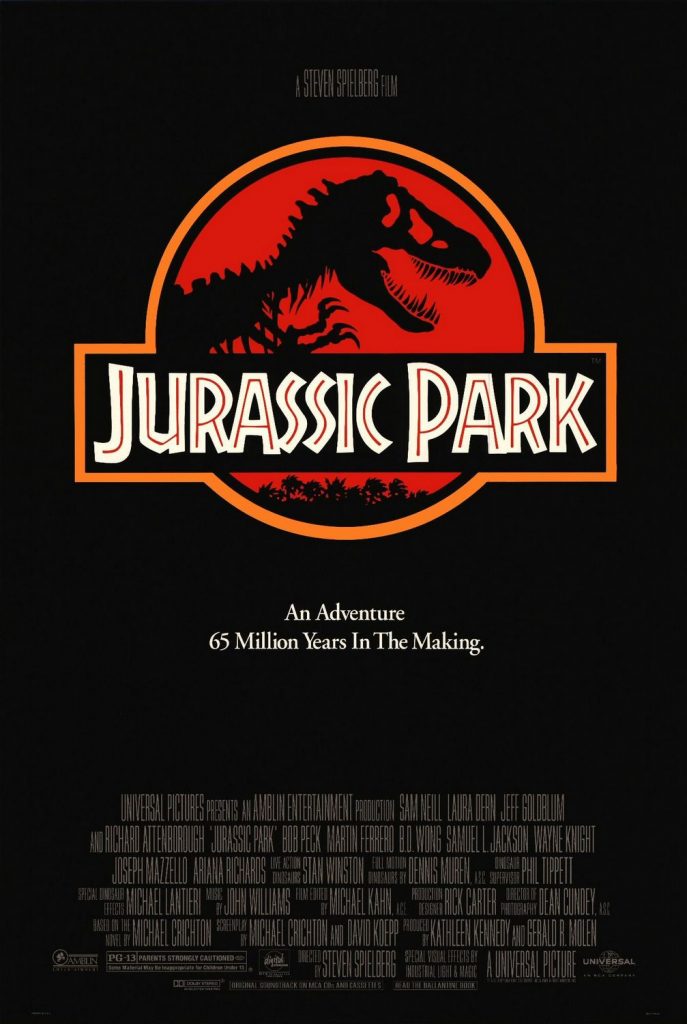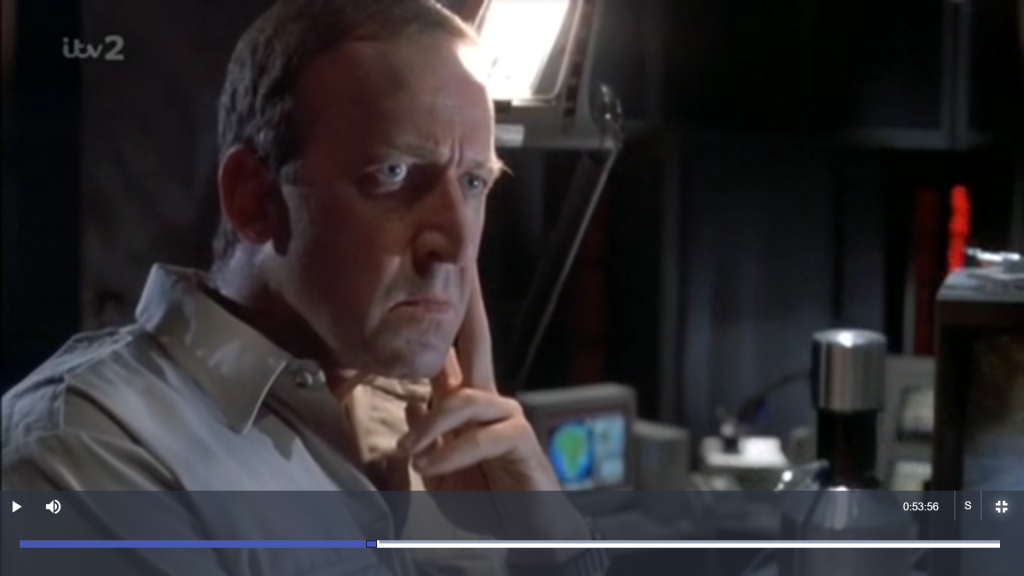Stephen Spielberg’s 1993 blockbuster adaptation of Jurassic Park is most well-known for its strikingly realistic puppet and CGI representations of the most fascinating of the prehistoric animals: the dinosaurs. Though the dinosaurs are impressive, it is the other, less unusual animals which appear in the film who are often overlooked, which provide an interesting point of analysis.
The main way in which Jurassic Park conveys its message is in its use of irony. This is particularly evident in this scene as the goat appears in a cage with a chain around its neck. This is ironic as the goat is a harmless herbivore so the restraints are unnecessary. This makes man look incompetent and foolish as a result of the desire to control which can sometimes override rational thinking. Visual irony is heightened by the diegetic sound of the goat bleating, accentuating its harmlessness and innocence. The appearance of the goat sparks different reactions from the two grandchildren. Lex is horrified due to her vegetarianism whereas Tim is fascinated. Lex’s vegetarianism evokes surprise from Donald who ironically makes a joke about lamb chops. This is unsurprising as symbolically his profession as a lawyer embodies the carnivorous, overly consumeristic and corporate world in which the conditions for a want for Jurassic Park to exist have been created and into which he is an active contributor.
The modern animals in the film are used mainly as objects of food for the dinosaurs, which in itself is rather unsettling for a modern audience. This really highlights the unnaturalness of the situation for the viewer as there is something jarring seeing a live animal used as bait for a dinosaur which should be extinct, only now surviving because of the intervention of man. The film is very preoccupied with concerns about human arrogance, the belief that man has the power to tamper with nature through the man-made concept of science and the relative morality of this. This is illustrated by the scene in which the cars pull up to the T-rex enclosure on the tour of the park. Moments before this, there is a shot of the control room, in which there is chattering in the background. This cuts to Robert Muldoon, who tells the others to be quiet and says “They are approaching the Tyrannosaur paddock.” This is accompanied by a slow zoom to the characters face, showing his concern through his facial expressions and the slow pace of the zoom creating tension. Both the characters in the film and the audience expect to see a dinosaur. Yet, anticlimactically and creating comedic bathos a goat in a cage appears on screen instead. As this breaks both the audience and character’s expectations of what they are about to see, a ferocious carnivore replaced with a tame farmyard animal highlights the inability of man to control life and wild animals, especially an animal as powerful as a T-rex which simply will not appear on command. The whole concept behind the horror is Jurassic park is man’s realisation at how small we really are as a species compared to other mammals and forces of nature. In Jurassic Park man has already controlled life in creating the dinosaurs, adopting a godlike role which Dr. Malcom comically explains “God creates dinosaurs. God destroys dinosaurs. God creates man. Man destroys God. Man creates dinosaurs”. Though this comment from Malcom is tongue in cheek it accurately describes the whole ideology behind the film which is a critique on mans arrogance. The film is almost dystopian in this sense as it imagines a world which is, in Malcom’s words Godless or at least disrespectful of any higher power, which ultimately results in carnage.
Jurassic Park, though a successful Hollywood blockbuster is not afraid to ask its audience difficult ontological questions about the ethics of man tampering with nature and artificially creating life. This is done most revealingly through the representation of the relationship between man and animal in the film as the animals represent a chaos which man strives to control.

